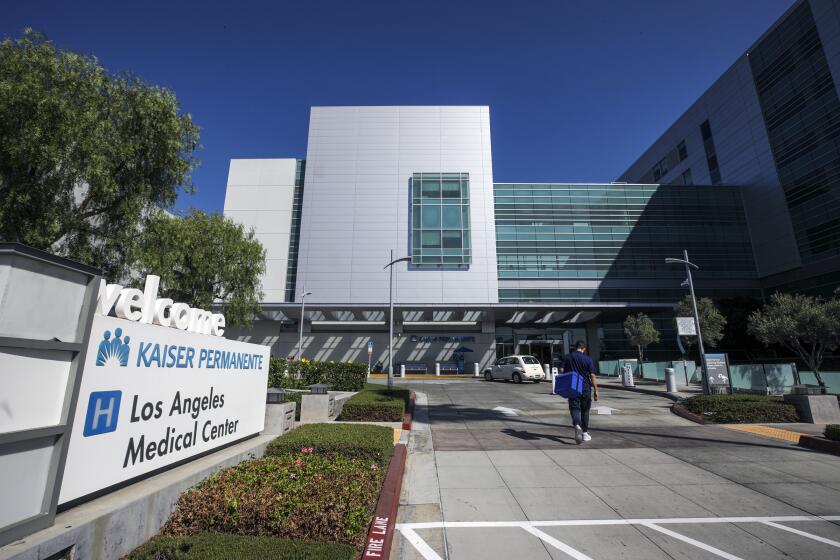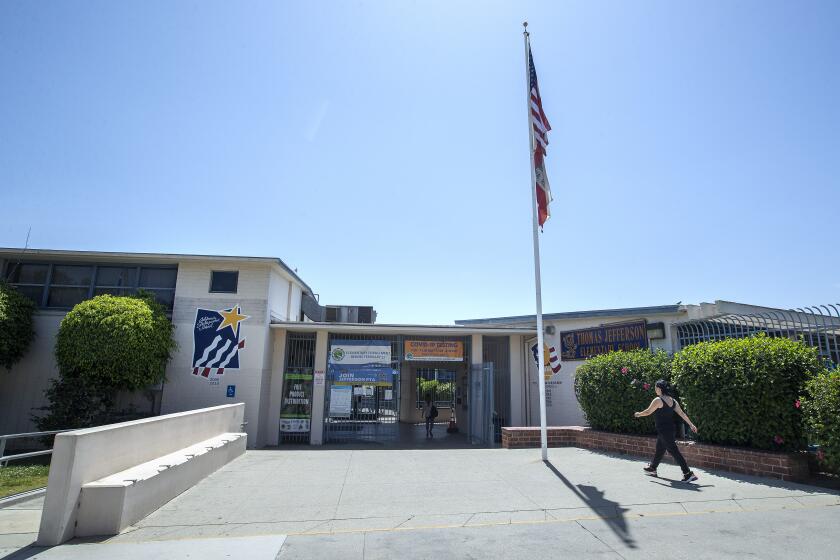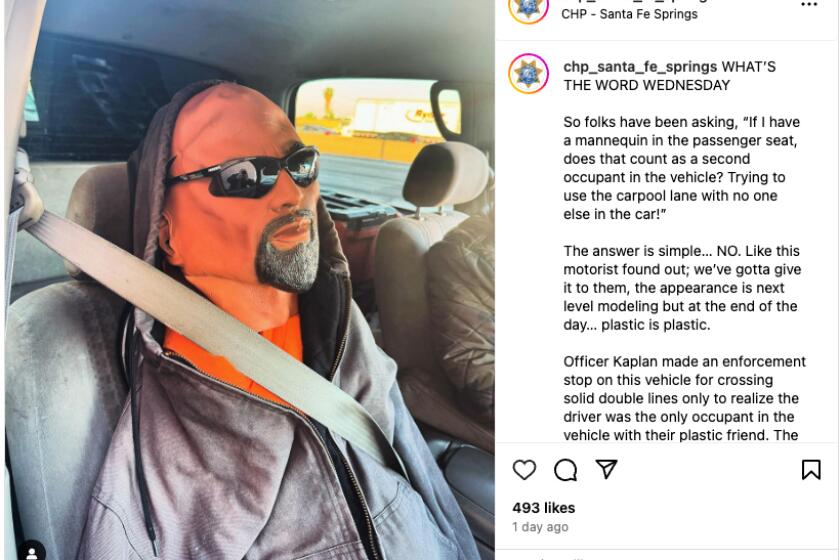Feeling bullied by stadium project
Tucked in the middle of the San Gabriel Valley lies nine square miles of hilly land flanked by four freeways filled with motorists, most of them heading elsewhere.
And that’s the way many of the 32,000 residents in Walnut like it. As the outside world drives by, those who live here on the far edge of Los Angeles County see it as a hidden oasis with horse-friendly crosswalks, single-family homes and an open, rolling landscape. Clean and quiet, safe and serene -- Walnut, locals say, is the quintessential bedroom community.
But that attitude has been tested since real estate mogul Ed Roski Jr. came calling with plans to build a 75,000-seat NFL stadium less than a mile from Walnut’s border. While other Southern California cities have eagerly offered themselves up to the economic possibilities of a professional football team, many in Walnut would prefer to keep their Sundays football-free. The likelihood of a stadium in their midst increased this week when Gov. Arnold Schwarzenegger signed a bill to help speed up construction by exempting the project from state environmental laws.
The proposed stadium would actually be in the warehouse-filled City of Industry, which has fewer than 100 voters. Although neighboring Diamond Bar and Pomona also will be affected by a development in the area, it is Walnut that has been the most vocal -- citing concerns about unruly fans, traffic jams, noise and that the stadium would be located off of one of its main thoroughfares, Grand Avenue.
But more than anything, there’s a gnawing feeling among some that a bully strutted into town, sweet-talked their civic leaders, put up some big cash and left them with virtually no voice in the matter.
“One thing we have learned is if you are not wealthy, you do not have political power,” said Shiuh-Ming Ellis, who has lived in Walnut for 21 years and opposes the stadium.
Raised in Taiwan, Ellis attended college in Wisconsin before moving west and discovering Walnut. She was struck by the neat streets, verdant lawns and the fact that you could get anywhere in town in five minutes. Housing was affordable, schools were good and she believed it would be a peaceful setting for a family.
Ellis, 56, also believed that in a small town, the people truly had a voice.
So when Roski and his development company, Majestic Realty, proposed a 600-acre stadium complex, Ellis was among those who pressed the Walnut City Council to file a lawsuit to block the plan. In addition, she and seven other citizens filed their own legal suit.
Last month, though, the City Council agreed to drop the suit in exchange for $9 million from Majestic Realty, and when Schwarzenegger signed the bill Thursday, the citizens’ lawsuit was nullified.
“We couldn’t believe they would actually go to Sacramento to lobby to get exemption for their project!” Ellis said. “They are setting a precedent. Can you imagine? If they grant it to Ed Roski, they will have to grant it to all other rich people in the future.”
Others, though, see the stadium plan as being perfect medicine during tough economic times -- new customers streaming through town, increased tax revenues and a venue that would provide a new destination for locals.
“It’s better than more industry and more trucks in that area,” said Chris Jackson, 40, who grew up in Walnut and now coaches water polo and swimming at Mount San Antonio, a community college in town.
In addition to the stadium and practice fields, the proposed complex would include a movie theater, retail stores and restaurants.
In the days before the governor seemingly dashed their hopes, Ellis and others handed out literature written in Chinese and English at the Walnut Family Festival headlined “Stadium is not a done deal! United we can!!” Most passersby gave the booth an approving nod.
“A stadium is just going to bring in riffraff,” said resident Jose Velasco, 23, after signing a petition against the stadium. “I’m not against football; I’m against it in our community. They should take it to downtown L.A. if they’re going to have a football team, not Walnut. I think the city sold us out.”
Lissett Crenshaw, 52, shuddered at the thought of additional traffic.
“Just imagine if they have a Super Bowl -- good God,” she said.
Former Walnut Mayor Drexel Smith said the city should have seen the benefits of working with a developer willing to privately finance an $800-million complex that would be limited to 45 events a year.
“I thought the council should negotiate with the developer as opposed to just simply creating an antagonistic atmosphere,” he said.
Proponents also say a stadium will create thousands of jobs and generate more than $760 million in new revenue.
“We hope the stadium comes soon and brings more customers,” said Margaret Qiu, 39, manager of the Japanese restaurant Akasaka, which is in a retail center owned by Majestic Realty and is within walking distance of the stadium site. “Business isn’t so good. A stadium would be nice for the whole area.”
Maurice Jones, 31, a bartender at Applebee’s, which passes as the local sports bar, said it’s time for Walnut to embrace change.
“It’s kind of a cultural thing -- they like their slow living and they don’t want to jeopardize that,” Jones said. “But they have to come into these times.”
Walnut Mayor Mary Su said while she is not in favor of the stadium, it’s just not realistic to expect to win a civic battle over a development in another town.
“Our obligation is to protect Walnut residents’ quality of life,” Su said. “We thought, ‘OK, we can’t stop the project, but we can look into mitigation.’ If this stadium was in the city of Walnut, we would’ve fought all the way.” In addition to getting a $9-million settlement, the city will also get annual payouts of up to $500,000 for 30 years. The money would be used for city and street maintenance, Su said.
Councilman Joaquin Lim was the lone dissenter. “Once we would go all out to protect neighborhoods over a small thing,” Lim said. “This is about the only time I have lost faith in our system.”
--
More to Read
Start your day right
Sign up for Essential California for news, features and recommendations from the L.A. Times and beyond in your inbox six days a week.
You may occasionally receive promotional content from the Los Angeles Times.







